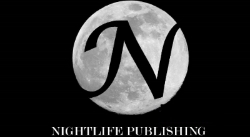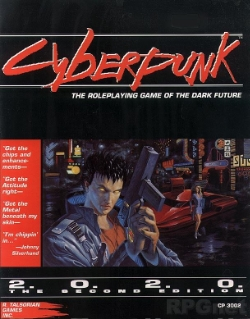Someday someone might decide to make a Wikipedia page about me. If they’re smart, they’ll just copy this page and save themselves a lot of work.
The Early Years
My relationship with writing started with my initial grasp of reading and being conscious of the world around me. Some of my earliest memories revolve around a steady diet of Sesame Street, Spider-Man and Schoolhouse Rock. I learned to read because I was drawn to the stories. I didn’t know what writing was, but like most boys in that era I told stories with and to my friends using action figures. When our budding creativity became to elaborate for the oral tradition of our primitive puppetry, we got paper and pencils and started making comics.
The Delusional Period
At some point, Marvel Comics had some silly promotion asking readers to submit their ideas for new stories with Marvel characters. We got it into our little heads that if we wrote our own comics, writing for the big companies would be easy. We didn’t know professional writers shopped their material for years before anyone gave them a shot at writing for the major titles. We didn’t know hundreds of thousands of other kids (and adults) would kill for the chance to write for Marvel. We just decided we were going to be the next big thing in comics at the ripe old age of twelve.
So I read the book on making comics (probably Making Comics the Marvel Way), spent a couple weeks writing my synopsis for a mini-series with a C level Japanese character called Sunfire and sent my submission to Manhattan. Then I sat back and waited for Jim Shooter, the editor in chief of Marvel at the time to call my house and ask me to come in and start working.
And I did hear from Jim Shooter. Well…not really. I heard from his assistant who sent a standard rejection letter. I cried as if my best friend abandoned me. I didn’t buy or read comics for weeks. I might have been suicidal, but I didn’t know what suicide was at that point so I was saved by my ignorance. It took some time for me to pick myself up and go back to reading comics, but I didn’t try to write them anymore because I couldn’t handle the rejection.
The Geek Phase
The next phase of my writing life started in my early teens. It grew out of a self-created apprenticeship in the form of role playing games or RPGs. This was the early 1980’s, so RPG’s weren’t World of Warcraft server driven virtual spaces people live in today. Our games were local groups of kids telling stories with nothing more than paper, pencils and dice. The experience combined aspects of improvisational theater, gambling and tactical moves similar to chess.
I managed most of the groups I ever played with, writing stories for groups a small as one person or as big as ten. The subjects of each story ranged from elves to cyborgs, spies to vampires and random genres in between. Each story could play out for months or years with each person in the group acting as both a participant and a spectator at the same time. Writers often talk about their characters taking over a story as if they were individual people. Running an RPG created the same experience to a high degree, since every character was an individual person who wanted to both feel like the star of the show and exercise their right and ability to ignore every aspect of the plot you spent so much time creating.
The Dark Ages
In spite of (or perhaps because of) my shyness and social awkwardness, I got married at a young age. We struggled from the beginning because of my lack of communication and social skills. I couldn’t find a way to express myself in speech or actions, but I did try to use writing as an outlet for my frustration and repressed emotion. I spent eight years writing and re-writing a horrible sci-fi novel called the Salvation Strategy and several tragic short stories before the marriage ended. I didn’t produce any worthwhile work for anyone during this period, but the experience gave me the discipline to write under adverse conditions and the characters from those discarded stories evolved over the years and became the stars of my current work.
During this period, I also spent time among creative people as a professional. I graduated law school and became the in house counsel for a Japanese animation studio called Central Park Media. A few years later, I wound up at Marvel as the International Publishing Manager. I didn’t stay long, but working in a company like that even for a little while inspired me to keep writing and to see my work as a business as well as a creative outlet.
The Rise of Nightlife
When I lost my job at Marvel and my marriage ended, I decided to take the opportunity to reinvent myself. In fact, I tried and failed at several things, but each attempt worked a little bit better than the last.
I thought about opening up a nightclub and realized I didn’t know anything about nightlife and I didn’t have any money. When I started to teach myself about clubs in New York I decided to start a magazine. I soon realized I didn’t have money for that either. So I started a company called Nightlife Publishing and launched a website called New York Nights. I wrote about nightlife issues and trends weekly for about five years. The writing, drinking and connections I made with New York Nights turned into a book called Seize the Night that I released in 2010. Very few people read the book, but it did teach me the process of self-publishing, which would be helpful when I returned to fiction.
The Audience of One
The other aspect of my reinvention involved my personal life. I reentered the dating world with more enthusiasm and artistic interest than I did in my misspent youth. I started writing fiction again, but this time I wrote for an audience of one. Some of the ladies I spent time with inspired me to write erotica in their honor. Reading stories to each of them, with significant amounts of alcohol, was more satisfying than anything I wrote before. I decided to harness the energy of those stories and use it in more mainstream work.
Crime and Passion
In 2013, I released an anthology of stories called Smooth Operator. The title of the book came from my favorite song of all time and the stories reimagined many of my earlier work during my dark period. But this new book had the benefit of my years of writing online, my understanding of self-publishing and my heightened sensual aesthetic. Smooth Operator set the stage for an entire line of books in what I call the Crime and Passion universe. I released the first novel in the series in 2014 and called it A Taste of Honey. The sequel is called A Touch of Honey and should be available in March of 2015. Crime and Passion is going to be my major focus for the next six or seven novels. I’m at a place where I’m confident enough to plan for the next ten years and smart enough to know I still have a lot to learn.
Thinking about the Future
My plan is to take the Crime and Passion brand and make it a multi-platform experience. I want to create audiobooks, graphic novels and spin off stories. I’d love to Crime and Passion made into a TV series on Amazon, Netflix or the next big thing. I don’t think I’ll ever become famous, but I wouldn’t mind being rich. Part of me just wants to live long enough to see an entire shelf full of books I wrote and released myself.
I don’t think I’ll ever be seen as an overnight success, because the road I’ve travelled so far is already forty years in the making. I still plan to have a long career in writing and publishing because writing is more fun now than it was when I watched Sesame Street and played with action figures. Besides, being rejected doesn’t hurt nearly as much as it used to.
Thank you for reading all the way to the end. If you have questions (because I left out a vital detail or left you on a cliffhanger) please feel free to ask. You can almost always find me at gamalhennessy@gmail.com
Have fun.
Gamal








